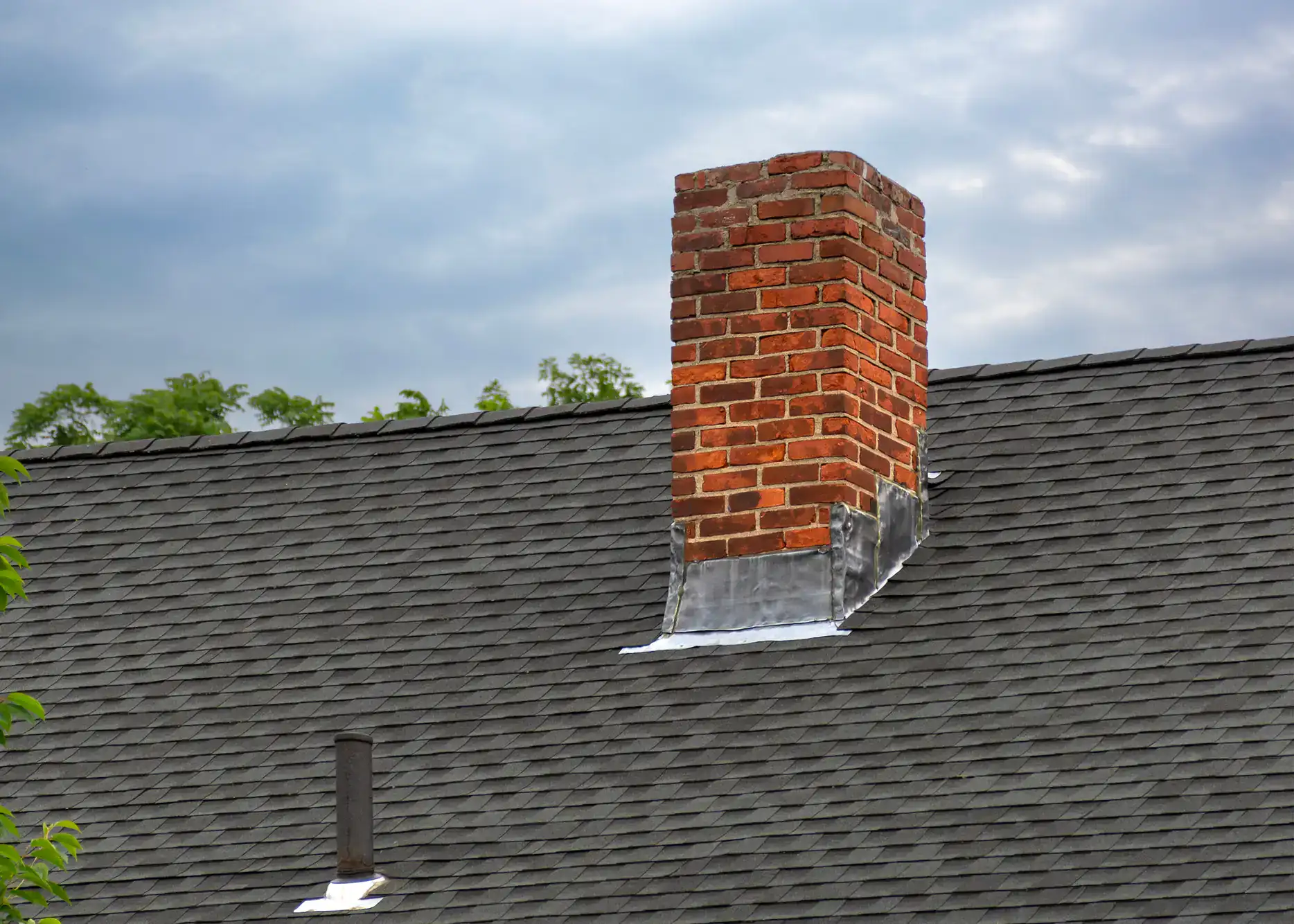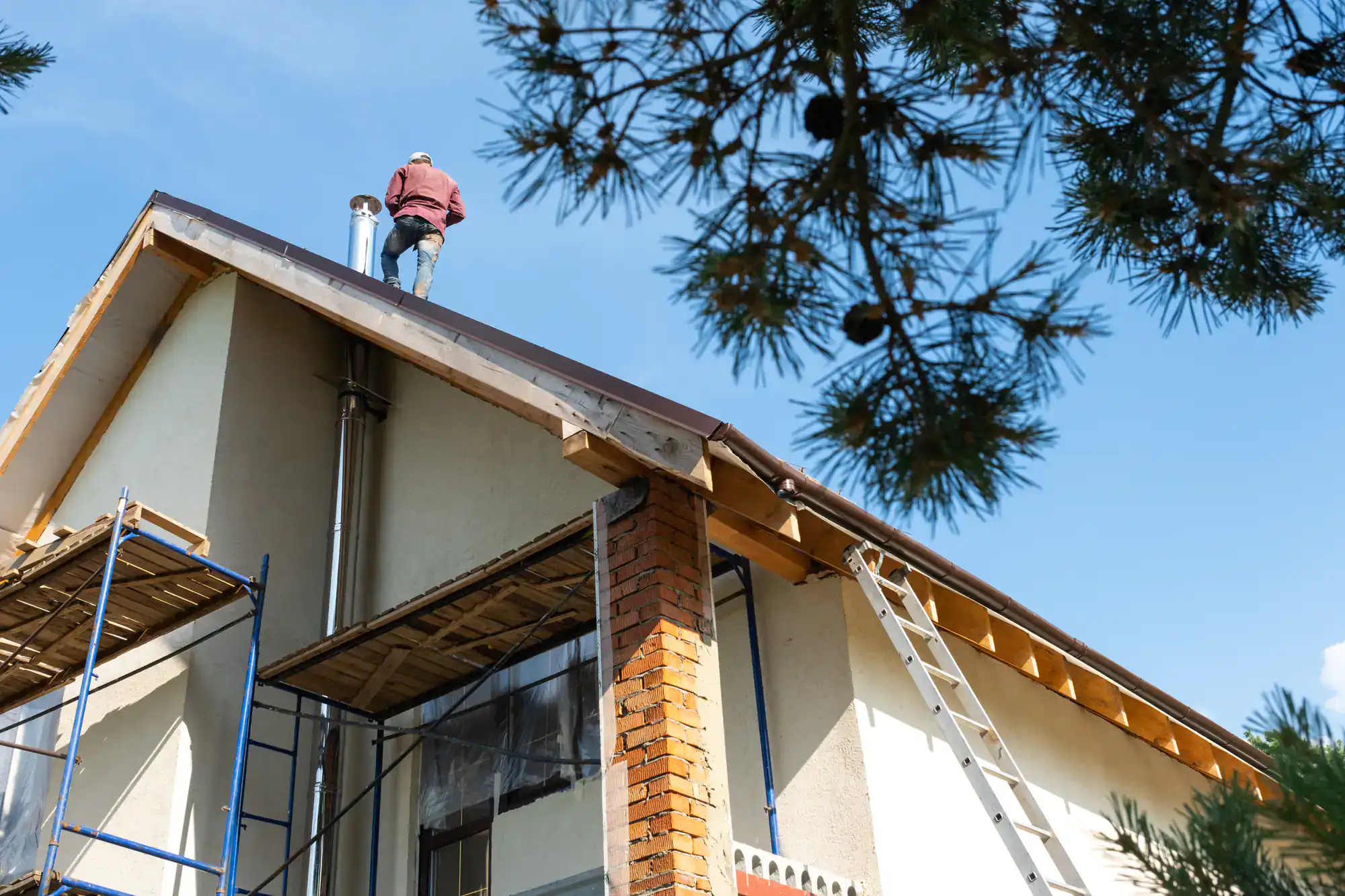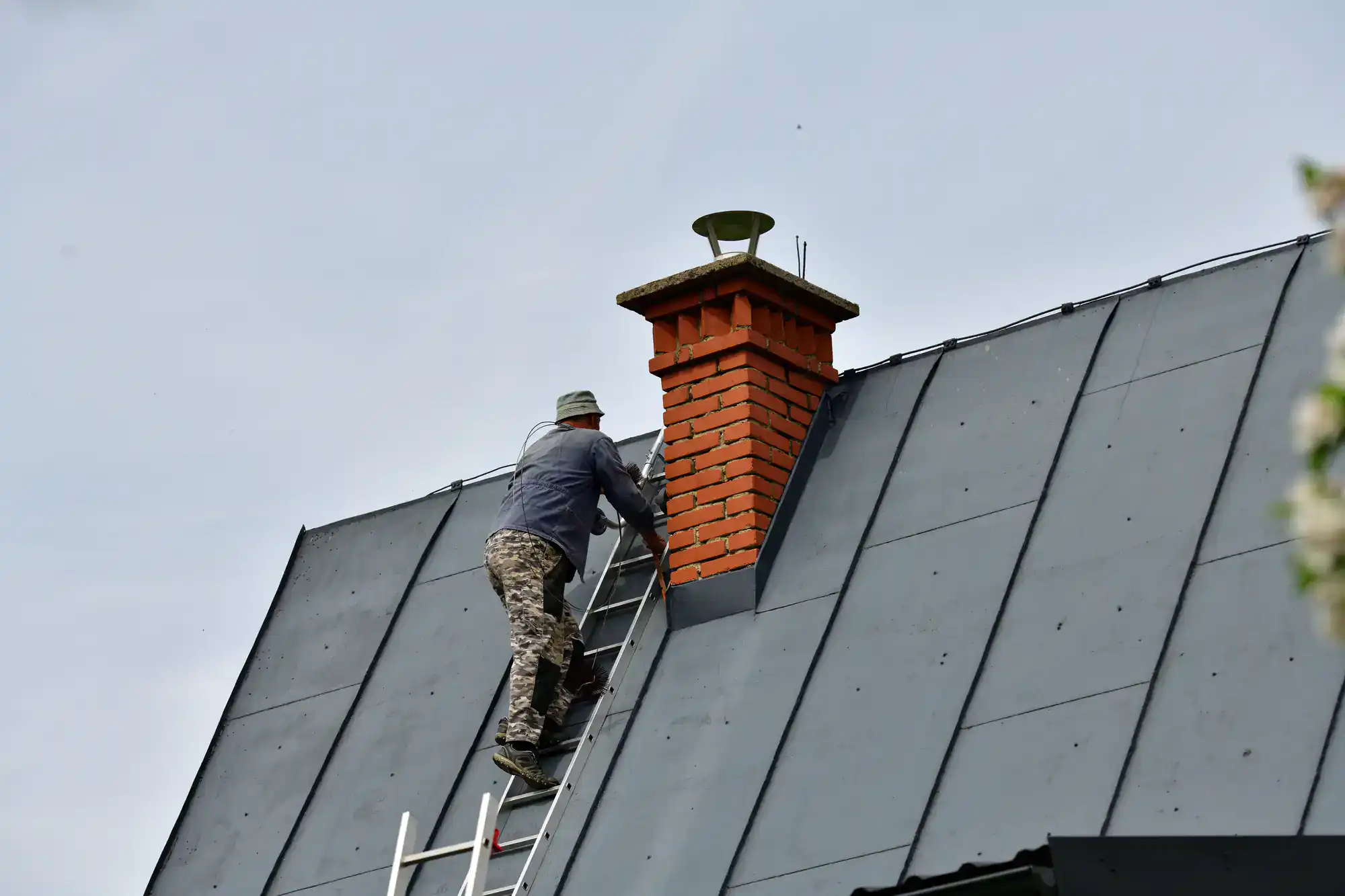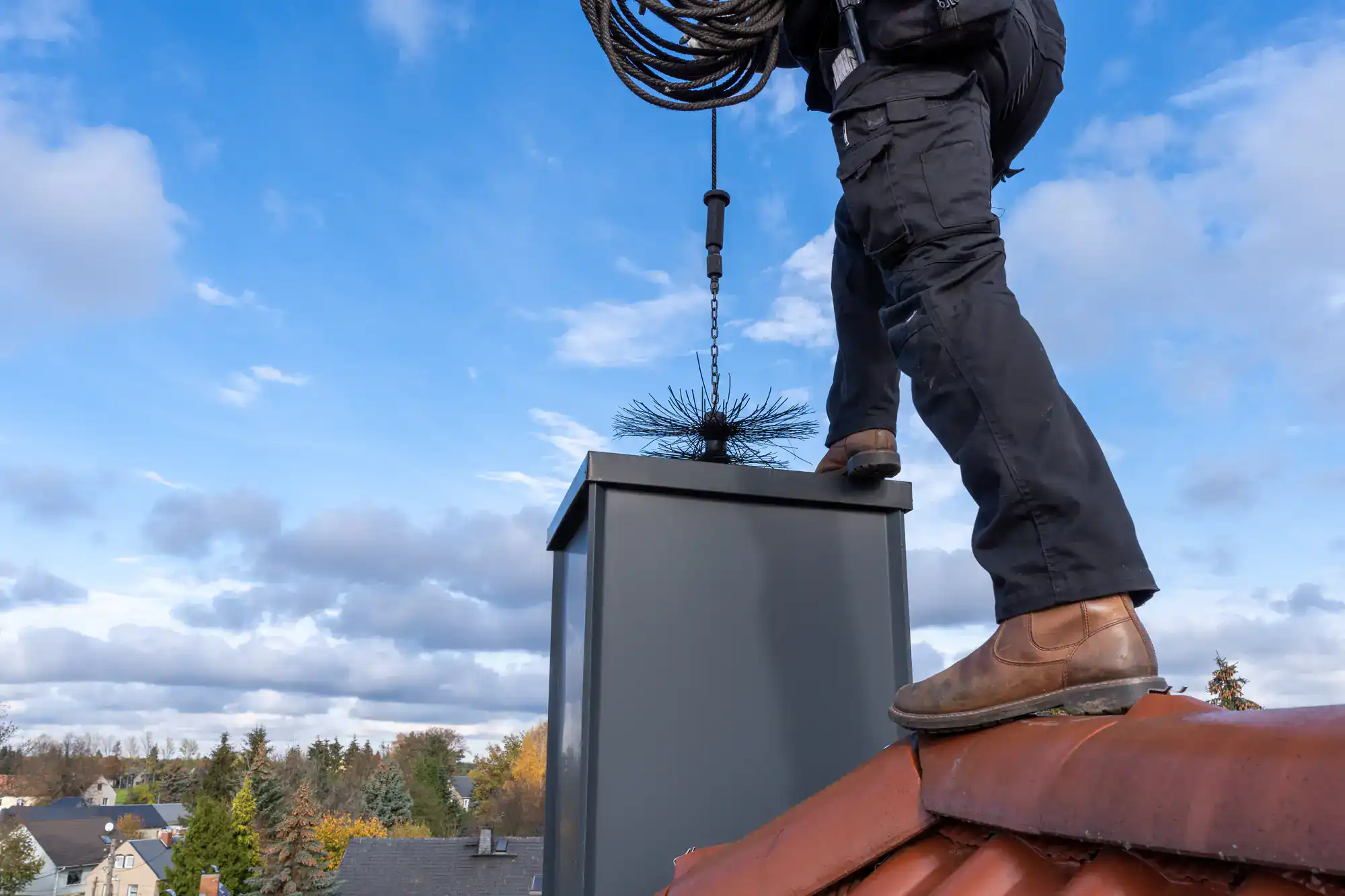
Hear from Our Customers

You shouldn’t have to wonder if your chimney is safe every time you light a fire. With nearly 25,000 chimney fires happening across the country each year, most caused by preventable creosote buildup, regular maintenance isn’t optional—it’s essential.
Clean chimneys burn efficiently, vent properly, and protect your family from carbon monoxide poisoning. You’ll sleep better knowing your system has been professionally inspected and cleaned by technicians who understand exactly what to look for.
When your chimney works the way it should, your fireplace heats more effectively, your energy bills stay lower, and you avoid those expensive emergency repairs that always seem to happen at the worst possible time.
We’ve been serving Islip homeowners with reliable chimney services for years. We understand the unique challenges that Long Island’s coastal climate presents—from salt air corrosion to moisture intrusion that can damage your chimney faster than you’d expect.
Our team knows the local building codes, the common issues with older Islip homes, and exactly what it takes to keep chimneys functioning safely through harsh winters. We’re not just another contractor passing through—we’re your neighbors, and we take that responsibility seriously.
Every job gets the same attention whether it’s a routine cleaning or a complete chimney rebuild, because we know that cutting corners on chimney work isn’t just bad business—it’s dangerous.

We start with a complete inspection using professional video equipment to see exactly what’s happening inside your chimney. This isn’t a quick look-around—we examine every accessible part of your system, checking for damage, blockages, and fire hazards that could put your family at risk.
Next, we remove all creosote buildup, soot, and debris using high-powered equipment designed specifically for chimney cleaning. We don’t just clean what’s easy to reach—we make sure your entire flue is clear and safe.
Finally, we provide you with a detailed report of what we found, what we fixed, and what you might need to watch for in the future. No surprises, no upselling—just honest information so you can make smart decisions about your chimney’s maintenance.

Ready to get started?
Our chimney services cover everything from basic cleaning to complete system rebuilds. We handle chimney liner installation, masonry tuckpointing, chimney cap and crown repair, and fireplace restoration—all designed to keep your system running safely and efficiently.
Living in Islip means dealing with coastal weather that can be particularly hard on chimneys. Salt air accelerates corrosion, moisture finds its way into cracks, and storms can damage caps and crowns. We see these issues regularly and know exactly how to address them before they become expensive problems.
Whether you need annual maintenance, emergency repairs, or a complete chimney overhaul, we use quality materials and proven techniques that stand up to Long Island’s demanding climate. Every repair comes with clear explanations of what we’re doing and why it’s necessary for your safety.

Most Islip homeowners should have their chimneys professionally cleaned at least once a year, but it depends on how much you use your fireplace. If you burn wood regularly during the winter months, you might need cleaning more often—especially with Long Island’s coastal climate that can make creosote stick more persistently to flue walls.
The National Fire Protection Association recommends annual inspections for all chimney systems, and we typically find that homeowners who use their fireplaces frequently benefit from cleaning after every 50-100 fires. Oil-burning systems usually need attention every 2-3 years, while gas systems should be inspected annually even if they don’t require full cleaning.
The key is not waiting until you notice problems. Creosote builds up gradually, and by the time you see signs of trouble, you might already be at risk for a chimney fire.
Several warning signs indicate your chimney needs professional attention right away. If you’re having trouble starting fires, if smoke is entering your room instead of going up the chimney, or if you notice a strong odor coming from your fireplace even when it’s not in use, don’t wait to call for service.
White staining on the outside of your chimney, rust on the damper or firebox, or damaged chimney crown are also red flags that need immediate attention. Animals or birds in your chimney, water leaking into your fireplace, or pieces of tile or masonry falling into the firebox all indicate serious problems that could worsen quickly.
In Long Island’s coastal environment, we also see accelerated deterioration from salt air exposure. If you notice any crumbling mortar, loose bricks, or damaged flashing around your chimney, these issues can lead to water damage and structural problems if not addressed promptly.
Creosote is highly flammable and poses a serious fire risk when it accumulates in your chimney. This sticky, tar-like substance forms when wood smoke cools and condenses on chimney walls, and it’s responsible for most preventable chimney fires across the country.
What makes creosote particularly dangerous is that it burns extremely hot—hot enough to crack your chimney liner and spread fire to combustible parts of your home’s structure. Even a small amount can ignite if flue temperatures get high enough, and once a creosote fire starts, it can be explosive with loud popping and crackling sounds.
The good news is that creosote buildup is completely preventable with regular professional cleaning. We remove all traces of creosote during our cleaning process, eliminating this fire hazard and ensuring your chimney vents safely. Waiting too long between cleanings allows creosote to harden and become more difficult to remove, which is why we recommend staying on a consistent maintenance schedule.
A chimney liner is essential for safe operation—it protects your chimney walls from heat and corrosion while ensuring proper draft for smoke and dangerous gases like carbon monoxide. Most building codes require liners, especially when converting from oil to gas heating systems.
Signs that your liner needs attention include white staining on your chimney exterior, rust on metal components, or deteriorating mortar joints. If your home has an older clay tile liner, these often crack over time due to temperature changes and moisture exposure, which is especially common in Long Island’s coastal climate.
We use professional video inspection equipment to examine your liner thoroughly, looking for cracks, gaps, or deterioration that could compromise safety. Stainless steel liners are often the best replacement option because they resist corrosion, improve draft efficiency, and meet current safety codes. If we find problems with your existing liner, we’ll explain exactly what needs to be done and why it’s important for your family’s safety.
Our professional chimney inspections examine every accessible part of your system, both inside and out. We check the chimney structure, flue condition, appliance connections, and all components for damage, blockages, or safety hazards that could put your family at risk.
Using specialized video equipment, we can see inside your flue to identify cracks, obstructions, or creosote buildup that aren’t visible from the fireplace. We also examine your chimney cap, crown, flashing, and masonry work to catch problems before they lead to expensive water damage or structural issues.
You’ll receive a detailed report explaining what we found, including photos or video when necessary. We’ll recommend any needed repairs or maintenance, always explaining why something is important for safety rather than just trying to sell you services. Different levels of inspection are available depending on your situation—from basic annual checkups to comprehensive evaluations for real estate transactions or after system modifications.
Chimney cleaning costs vary depending on your system’s condition, type of fuel you burn, and how long it’s been since your last professional service. Basic cleaning for a well-maintained system typically costs less than dealing with heavy creosote buildup or blockages that require extra time and specialized equipment.
Repair costs depend on what needs fixing—simple issues like chimney cap replacement or minor masonry work cost much less than major repairs like liner replacement or structural rebuilding. The key is catching problems early through regular maintenance, which prevents small issues from becoming expensive emergencies.
We provide free estimates for all repair work and explain exactly what needs to be done and why. Our pricing is transparent—no hidden fees or surprise charges. Many homeowners find that investing in regular maintenance actually saves money over time by avoiding costly emergency repairs and extending their chimney’s lifespan. We also offer financing options to help make necessary repairs more manageable for your budget.
Other Services we provide in Islip